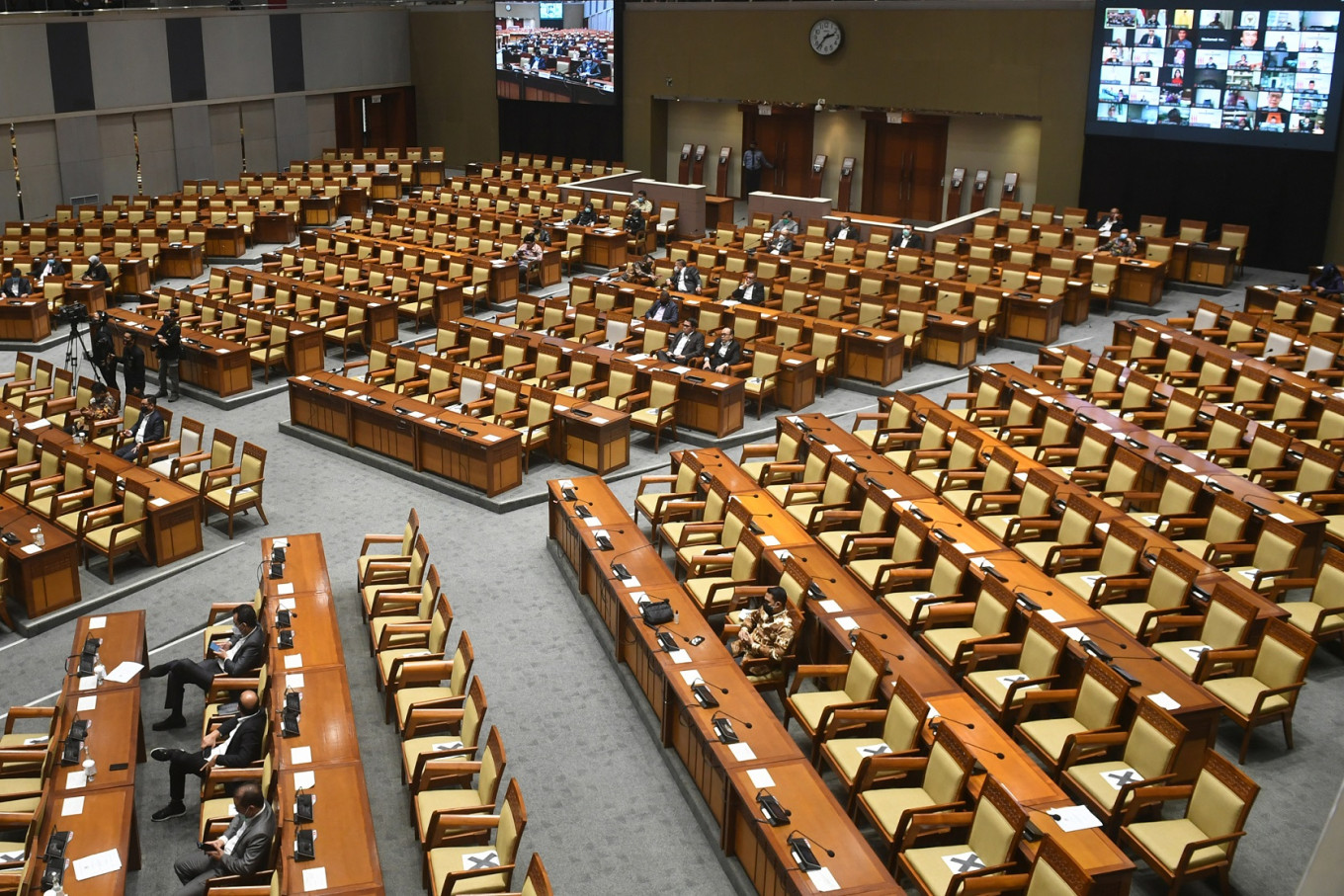Popular Reads
Top Results
Can't find what you're looking for?
View all search resultsPopular Reads
Top Results
Can't find what you're looking for?
View all search resultsPrabowo's fiscal constraints
Prabowo may eventually be able to implement his expansive fiscal policy if he can get adequate political support at the House to amend the 2003 State Finances Law that limits the deficit to 3 percent but that would cause big risks to the economic stability.
Change text size
Gift Premium Articles
to Anyone
P
rabowo Subianto, the most likely winner of the Feb.14 presidential election, has set a high growth-oriented economic agenda and asserted in his various campaign speeches over the last few weeks his tolerance of fiscal deficit of up to 6 percent of gross domestic product and a greater government debt ratio of up to 60 percent to finance his programs.
But he will encounter fiscal constraints to achieve annual economic growth of 6 to 7 percent and to finance his very populist measures. His flagship social assistance program alone, which will provide free meals and milk for about 50 million children is estimated by many analysts to cost about Rp 450 trillion (US$30 billion) annually, or equivalent to 13 percent of the government’s total expenditure budgeted for the whole of this year.
Even though President Joko “Jokowi” Widodo, who endorsed and supported Prabowo’s election, is still fully responsible for preparing and proposing to the House of Representatives the first (2025) fiscal year state budget for the new president on Aug. 16, Prabowo is unlikely to be able to get a far more expansive fiscal plan than this year’s total spending set at Rp 3.3 quadrillion (US$213 billion) with a fiscal deficit of 2.3 percent.
Finance Minister Sri Mulyani Indrawati, now in the last few months of her tenure, is unlikely compromise the principle of prudent fiscal management to allow for a budget deficit close to the 3 percent legal ceiling. Amid the global economic uncertainty, Prabowo may eventually be able to implement his expansive fiscal policy if he can get adequate political support at the House to amend the 2003 State Finances Law, which limits the deficit to 3 percent, but that would incur big risks to economic stability.
Even though bigger spending will inject vitality to generate higher economic growth, in Indonesia’s fiscal context that always means a bigger budget deficit, which consequently requires bigger borrowing or debt because the tax ratio to GDP has mostly been hovering below 10 percent, among the lowest in the ASEAN region.
Increased borrowing requires more bond issues, creating a much heavier debt service burden, which this year alone is set at Rp 497 trillion, or more than 22 percent of total tax revenues and 15 percent of total state expenditures.
The debt interest costs, which do not yet include the bonds that mature this year and have to be amortized, are even bigger than the funds allotted for infrastructure projects this year. This situation is caused by Indonesia’s relatively high interest rates. At 6.7 percent, the benchmark 10-year government rupiah bond yield is the highest among 10 regional local-currency notes compiled by the Asian Development Bank.
The bigger debt service burden will cause a vicious cycle of increased sovereign risk and consequently government borrowing costs, crowding out corporate bonds, setting off downward pressure on the rupiah and the bond market and increasing imported inflation in the domestic economy.
Besides fiscal restrictions, there is another major barrier that has been hindering the pace of growth over the past decade. Indonesia’s high incremental capital output ratio (ICOR), a common measure of investment efficiency, which according to Coordinating Economics Minister Airlangga Hartarto rose to 7.5 in 2023 from 6 in 2022 and 5.5 in 2014. This means that $7.50 spent on investment produces only $1 of income compared with Malaysia’s ICOR at 4.6, the Philippines at 3.7, Vietnam at 5.2 and India at 4.9.
Based on various private sector surveys, including those by foreign chambers of commerce, the main identified structural and policy impediments to investment and higher growth are a weak regulatory framework, inadequate infrastructure, a shallow capital market, the widespread mismatch of skills in the economy and stringent labor regulations.
Bureaucratic hurdles and socio-economic disparities also pose formidable barriers to sustainable growth. Hence, if the new government wants to achieve annual economic growth of more than 5 percent without creating economic overheating, it needs to strengthen the three pillars of growth: basic infrastructure, institutional capacity and human capital.











